Sehba Sarwar's Looking Beyond the Surface News
October writer-in-residence Sehba Sarwar blogs about P&W-supported Voices Breaking Boundaries (VBB), a Houston-based alternative arts organization. A writer and multidisciplinary artist, Sarwar uses her poetry, prose, and video/art installations to explore displacement and women’s issues on a domestic and global level. Her first novel, Black Wings, was published in 2004, and she is currently working on a second manuscript tentatively entitled "Island."
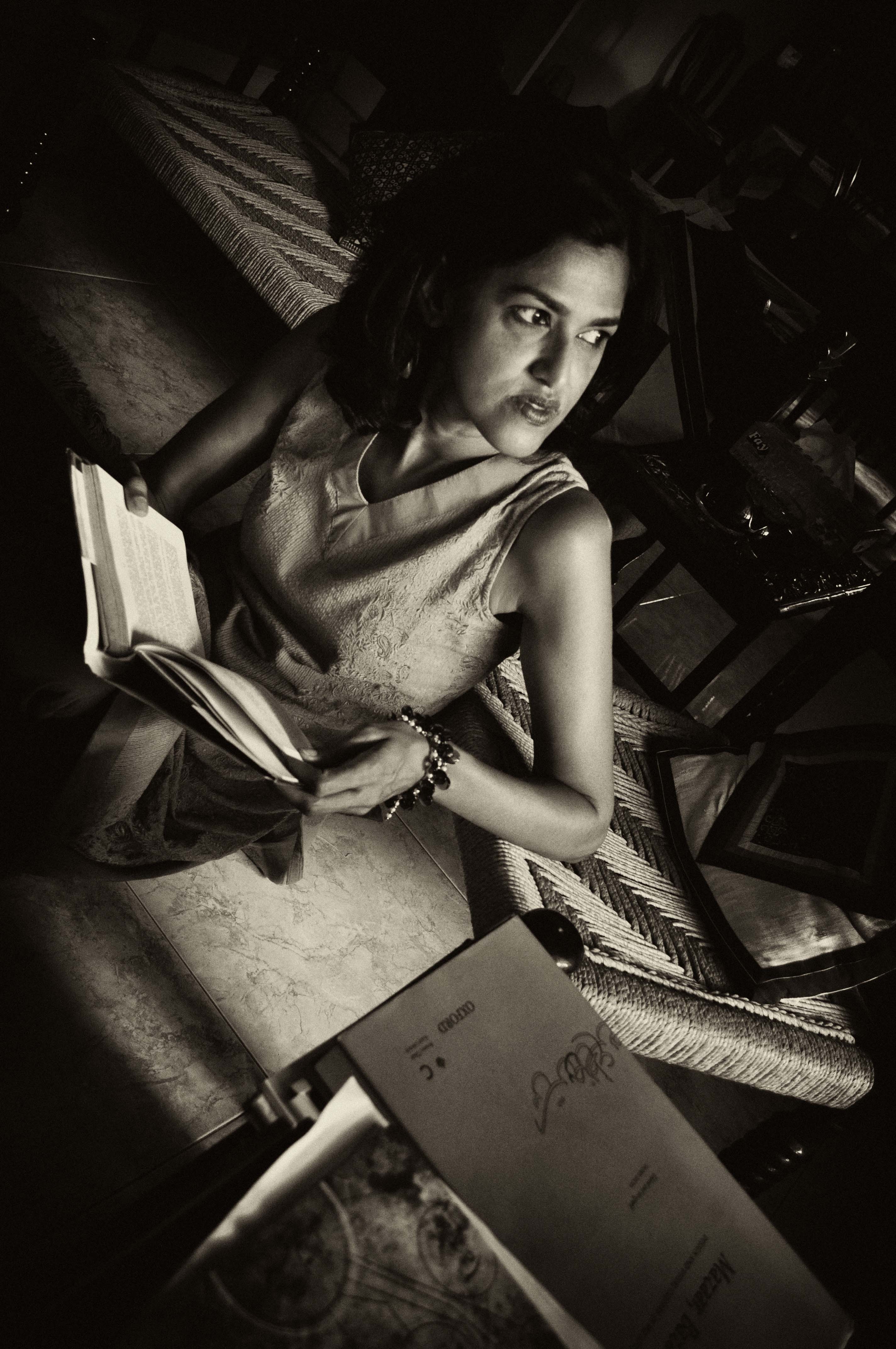 In Pakistan, September 21, 2012, was marked as a day of remembrance for Prophet Mohammad in response to a film that went viral and sparked violence in parts of North Africa, the Middle East, and South Asia. Knowing that the time difference between Houston and Pakistan was ten hours, I began checking online Pakistani newspapers as soon as I awoke. By the end of twenty-four hours, more than twenty people had been killed and six cinema houses had been burned. Meanwhile, progressive and secular communities that formed Pakistan’s majority were posting comments asking why extremists weren’t using their energies to offer help to the southern part of the country, where floods once again disrupted lives.
In Pakistan, September 21, 2012, was marked as a day of remembrance for Prophet Mohammad in response to a film that went viral and sparked violence in parts of North Africa, the Middle East, and South Asia. Knowing that the time difference between Houston and Pakistan was ten hours, I began checking online Pakistani newspapers as soon as I awoke. By the end of twenty-four hours, more than twenty people had been killed and six cinema houses had been burned. Meanwhile, progressive and secular communities that formed Pakistan’s majority were posting comments asking why extremists weren’t using their energies to offer help to the southern part of the country, where floods once again disrupted lives.
Two days after the protests, I received an e-blast from an Islamabad-based arts organization, Kuch Khaas, announcing screenings of selected best films from FilmSaar International Children’s Film Festival, and of course, in Karachi, T2F had resumed its regular programming. Life was returning to normal—something that must happen since flare-ups are part of daily living all around Pakistan.
More than ever, I appreciate that even though I’m based in Houston, I’ve woven my work so that I remain connected to alternative art and communities in Pakistan. The reality that I know is not reported in mainstream media. Sensationalist news always makes headlines, but I believe it’s also important to write about an independent arts organization screening children’s movies—despite the burning of cinema halls. Many organizations and independent artists in Pakistan, Bangladesh, Egypt, and Iraq continue to do the same, and their realities exist parallel to the deaths and protests that are reported to outside communities.
Through my work with Voices Breaking Boundaries, we create productions that juxtapose art and images from Pakistan and Houston so that our audience can find parallels between the two places. The purpose of these productions and workshops is to open space for innovative art from Karachi and Houston while also breaking down stereotypes about the issues we research. Further down the road, VBB is looking to expand research into other countries, including India, Pakistan, Bangladesh, and Mexico, so that our audiences can experience art from unexpected communities about issues that are largely unknown. Using digital space and live performances to create alternative productions is even more critical in these times, when divisions in the world are more fractured. As Patti Smith said, in her 2010 visit to Houston: “We create art to illuminate.” As artists and writers, it’s important for us to dig deeper beyond the surface news—all around the world.
Photo: Sehba Sarwar. Credit: Emaan Reza.
Support for Readings/Workshops events in Houston is provided by an endowment established with generous contributions from the Poets & Writers Board of Directors and others. Additional support comes from the Friends of Poets & Writers.





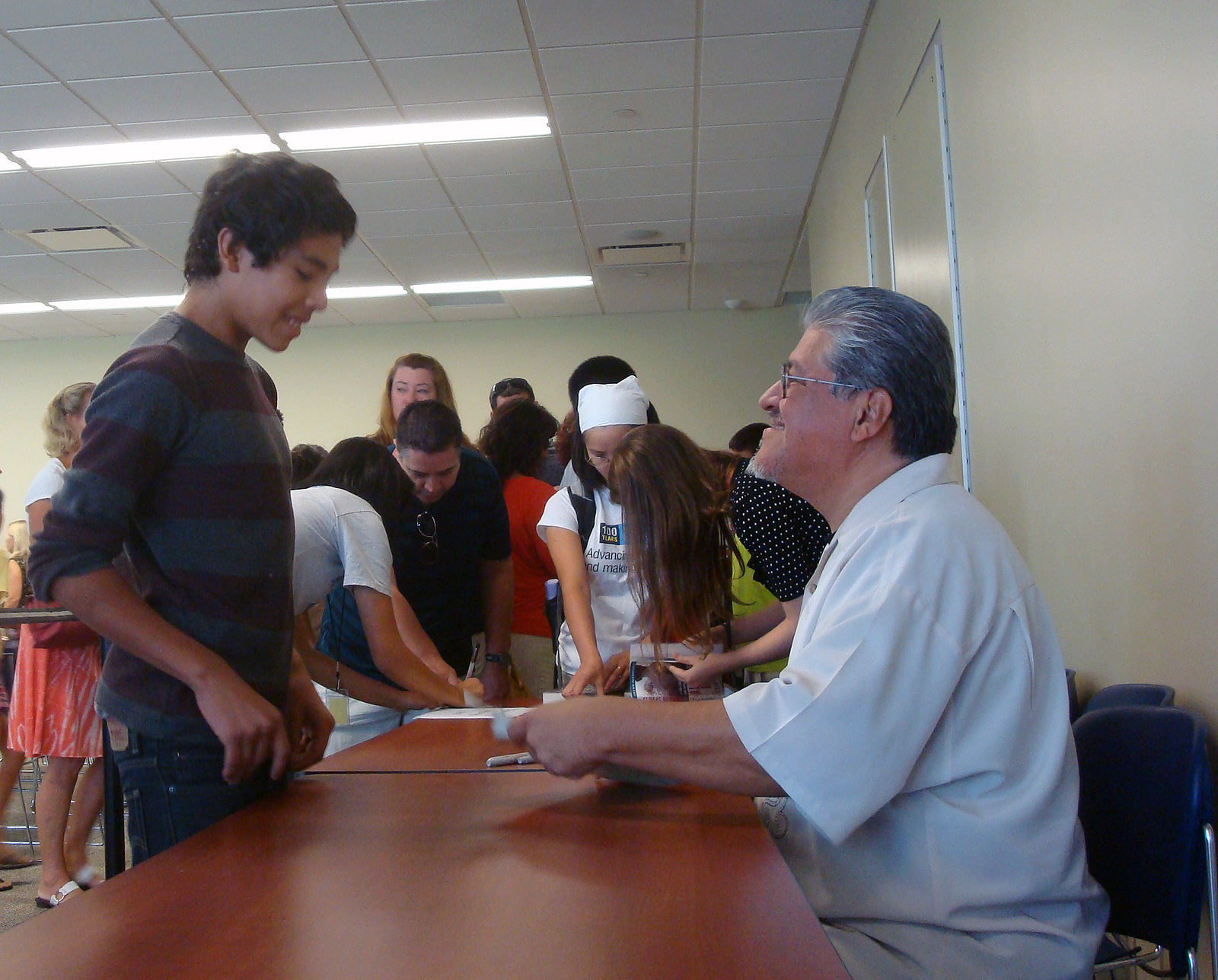 As Sunday afternoon temperatures climbed toward triple digits, a large crowd gathered in the comfortable confines of the Fullerton Public Library’s new Community Room. Families, teachers, and high school and college students waited for the arrival of Luis Rodriguez, author of Always Running: La Vida Loca, Gang Days in L.A. and director of
As Sunday afternoon temperatures climbed toward triple digits, a large crowd gathered in the comfortable confines of the Fullerton Public Library’s new Community Room. Families, teachers, and high school and college students waited for the arrival of Luis Rodriguez, author of Always Running: La Vida Loca, Gang Days in L.A. and director of 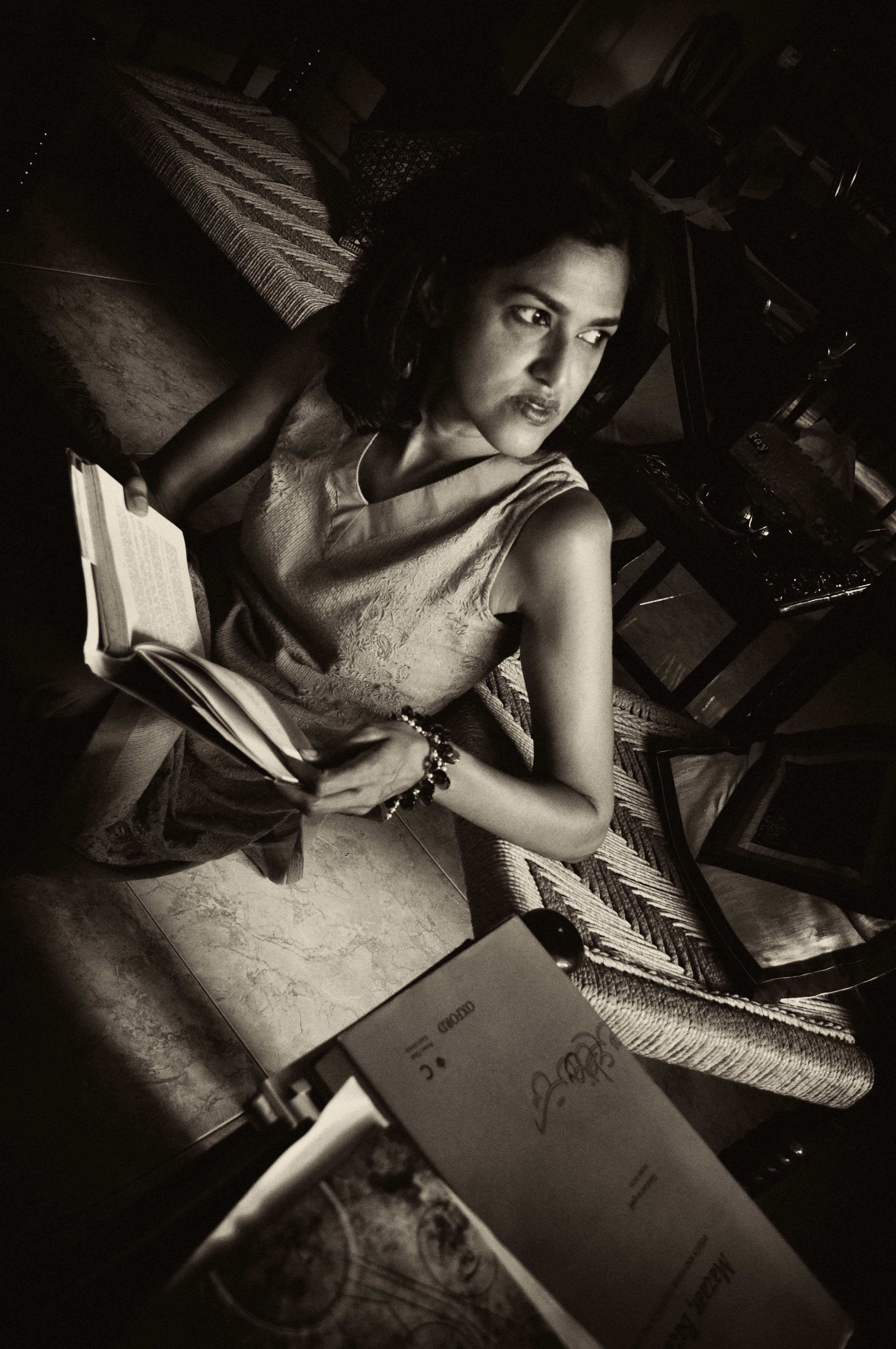 This month, as Voices Breaking Boundaries (VBB) launches our thirteenth season, I’m reminiscing about Fall 1999, when my friend Marcela Descalzi asked if I wanted to do anything before the start of the next millennium. At that time, Houston offered few options for new writers, performance artists, and grassroots activists.
This month, as Voices Breaking Boundaries (VBB) launches our thirteenth season, I’m reminiscing about Fall 1999, when my friend Marcela Descalzi asked if I wanted to do anything before the start of the next millennium. At that time, Houston offered few options for new writers, performance artists, and grassroots activists.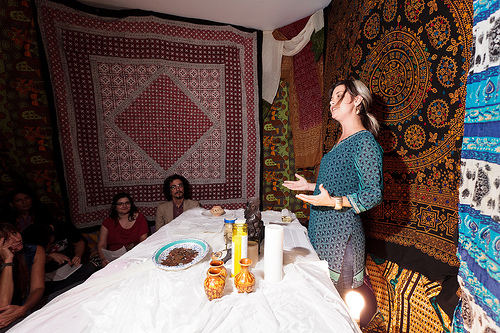 Fast forward to Fall 2012. I’m still writing and now draw a salary as VBB’s salaried artistic director. Over the years, VBB has received free performance and exhibition space and has collaborated with many other organizations, including Arté Publico Press, Project Row Houses, DiverseWorks, and Inprint, Inc., and has featured artists such as Arundhati Roy, Bapsi Sidhwa, and Patti Smith—all while continuing to tackle some of the most controversial issues of our times. We have carved a niche for our unique productions, living room art, through which we convert residential homes into art spaces and use the experience to create connections between Karachi, my home city, and Houston, where I’ve lived for some time. The productions, elaborate one night flares, meld spoken word, music, performance and videos with installations.
Fast forward to Fall 2012. I’m still writing and now draw a salary as VBB’s salaried artistic director. Over the years, VBB has received free performance and exhibition space and has collaborated with many other organizations, including Arté Publico Press, Project Row Houses, DiverseWorks, and Inprint, Inc., and has featured artists such as Arundhati Roy, Bapsi Sidhwa, and Patti Smith—all while continuing to tackle some of the most controversial issues of our times. We have carved a niche for our unique productions, living room art, through which we convert residential homes into art spaces and use the experience to create connections between Karachi, my home city, and Houston, where I’ve lived for some time. The productions, elaborate one night flares, meld spoken word, music, performance and videos with installations.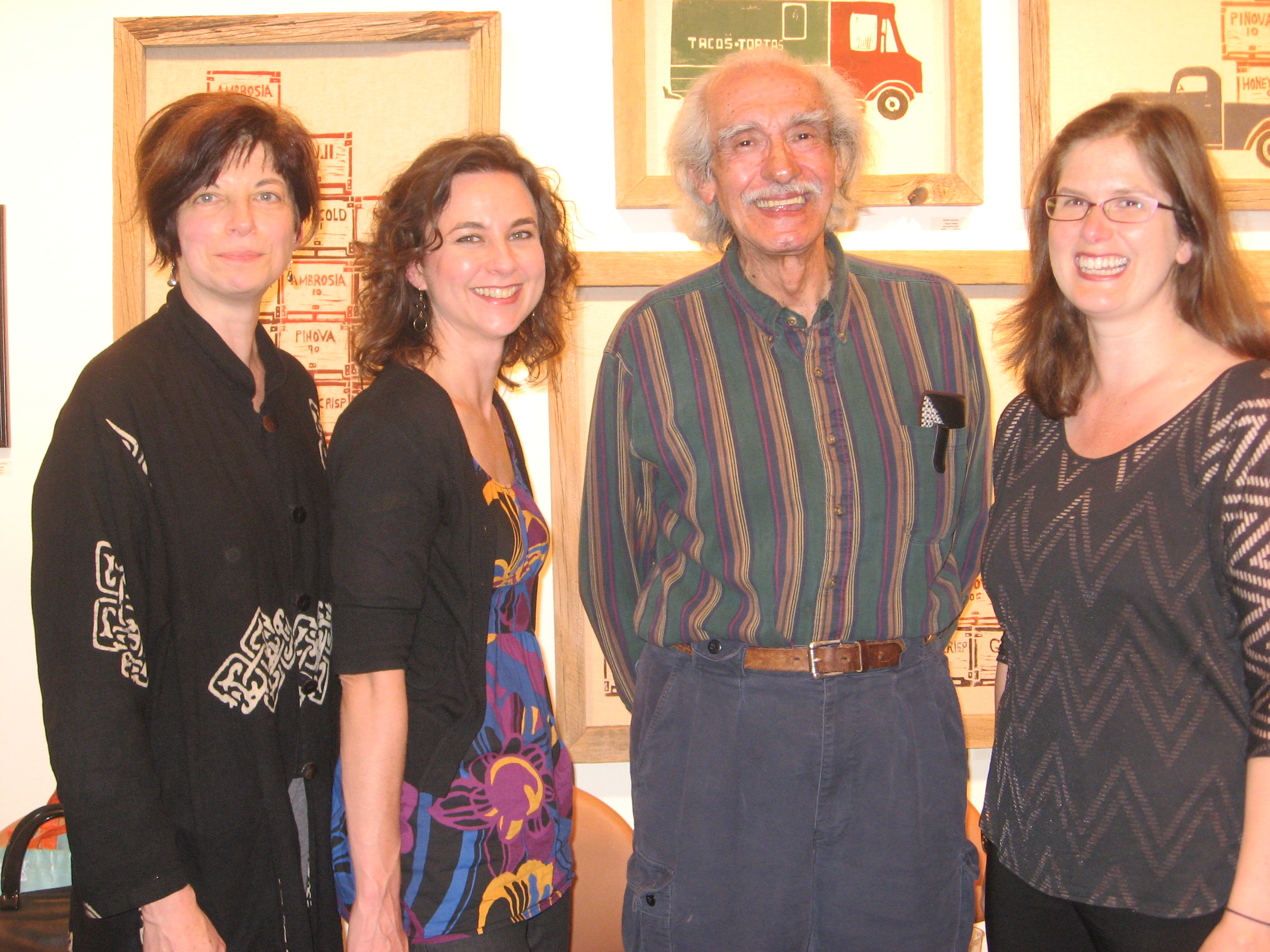 On a hot summer evening in Seattle, four writers presented new works responding to Rooted: Latino/a Artists’ Connection to Native and Adopted Lands, an art exhibit at Seattle’s Columbia City Gallery. The exhibit, a partnership between Columbia City Gallery and La Sala, a nonprofit Latino/a artists’ network, brought together regional visual artists and writers exploring themes of roots, family, identity, and home.
On a hot summer evening in Seattle, four writers presented new works responding to Rooted: Latino/a Artists’ Connection to Native and Adopted Lands, an art exhibit at Seattle’s Columbia City Gallery. The exhibit, a partnership between Columbia City Gallery and La Sala, a nonprofit Latino/a artists’ network, brought together regional visual artists and writers exploring themes of roots, family, identity, and home.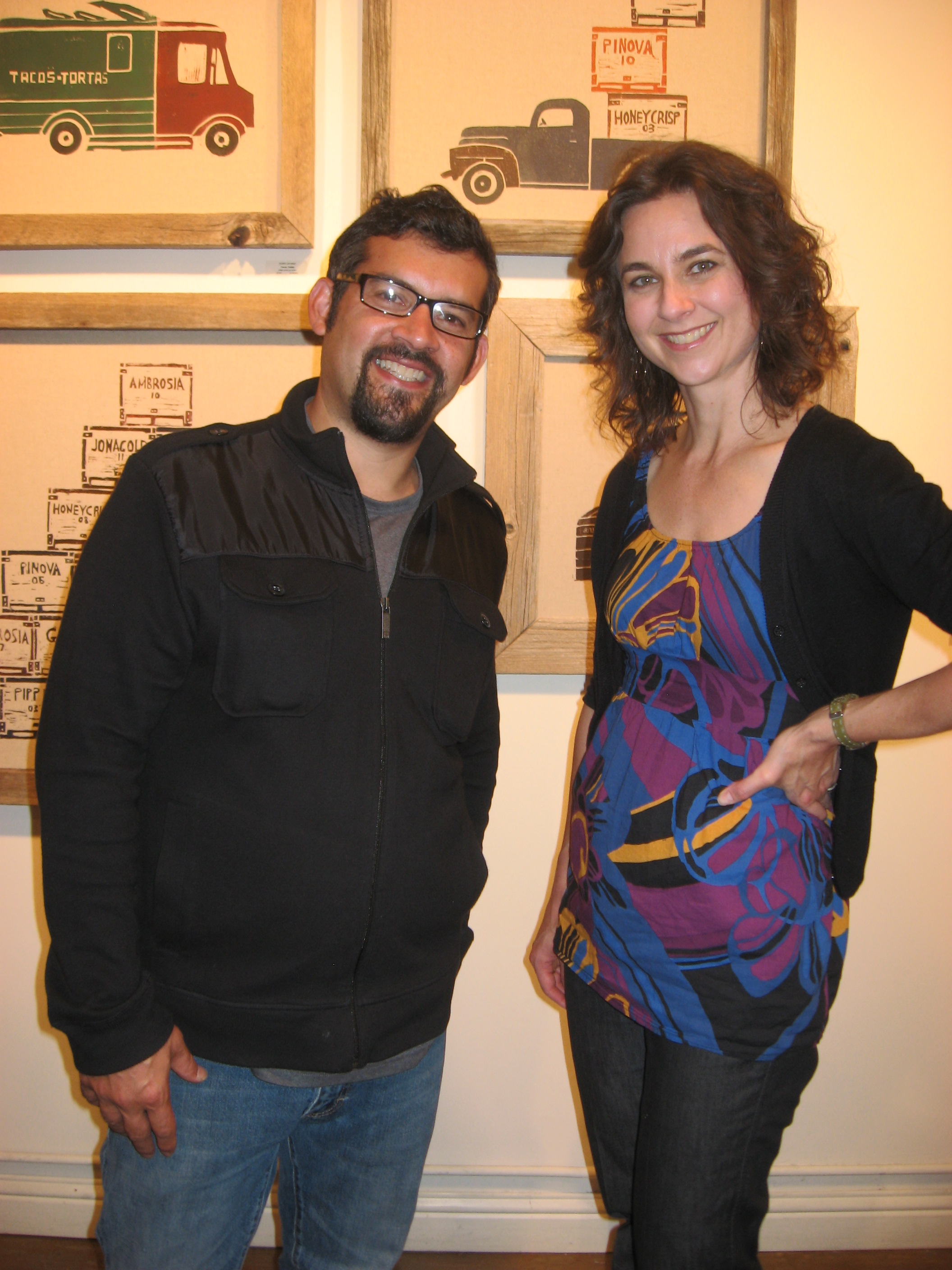 “Hello, my name is
“Hello, my name is